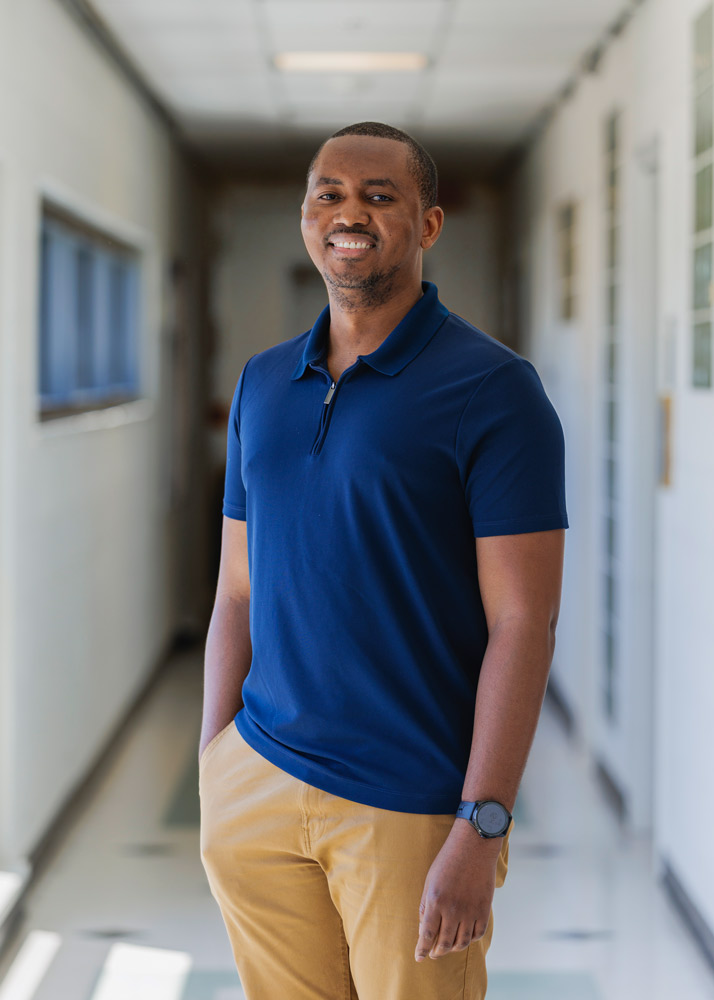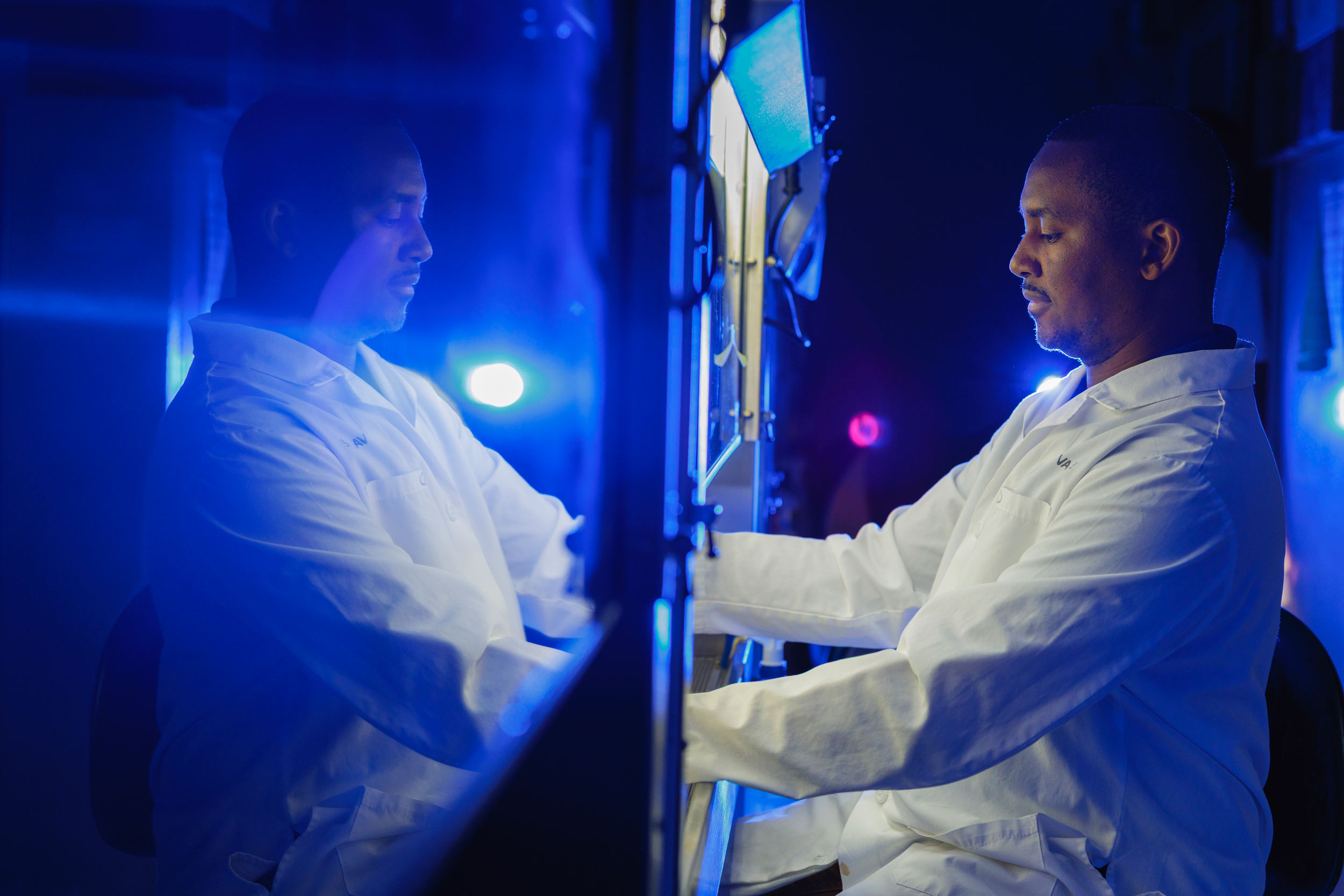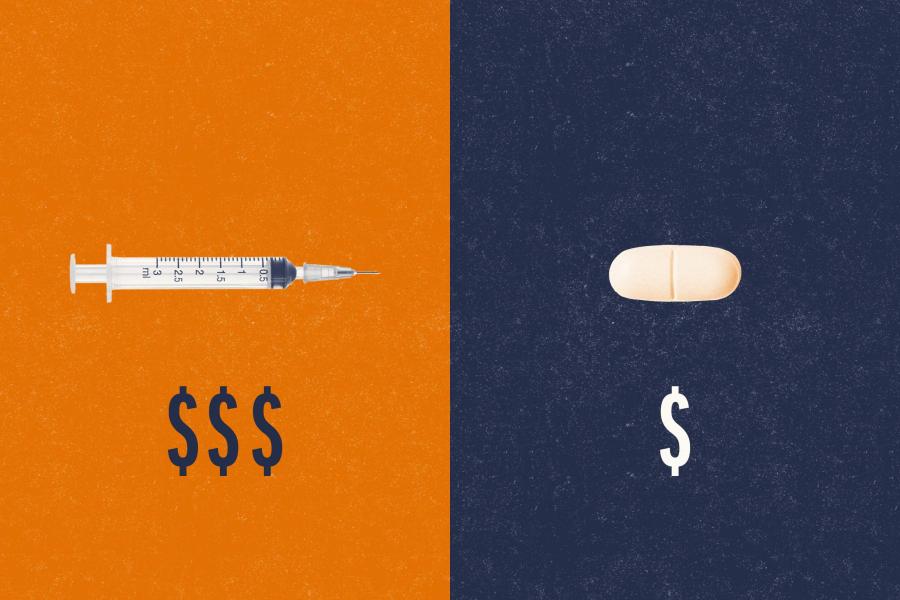Godfrey Dzhivhuho has dedicated his career to understanding HIV and other infectious diseases, inspired by the epidemic he witnessed growing up.
Raised in Warrenton-Kimberly, South Africa, the oldest of six grew up at a time when the country was hit hard by an HIV/AIDS epidemic.
“We saw a lot of deaths and people getting sick to the point where the local name for HIV/AIDS translated to ‘being snatched and dug into the grave,’ simply because drugs were not made available at the time,” Dzhivhuho said. “During that time, antiretroviral therapy that treats HIV existed, but the South African government delayed making it widely available because of denial of the link between HIV and AIDS and skepticism about ARVs.”

Dzhivhuho says a cure matters more now than ever as research funding is being cut. (Photo by Lathan Goumas, University Communications)
Frustrated by what he saw, he joined Thusanang, an organization that engaged youth in HIV prevention education. That experience sparked his passion to understand the disease and how to treat it.
Today, he investigates the biology of HIV and other infectious diseases at the University of Virginia’s Myles H. Thaler Center for AIDS and Human Retrovirus Research in the Department of Microbiology, Immunology and Cancer Biology.
As an undergraduate studying biology at the University of Venda in South Africa, he met Dr. Marie-Louise Hammarskjold and David Rekosh, co-directors of the Thaler Center and professors of microbiology, immunology and cancer biology, who facilitated a summer research internship exchange with UVA. They also led workshops and summer sessions for University of Venda students..
“At the time, Google was not yet popular, and we relied on molecular biology textbooks that they recognized were outdated,” Dzhivhuho said. “So, they brought us up to date on how HIV works at the molecular level and led a weeklong molecular biology workshop.”
Dzhivhuho went on to earn a doctorate in medical virology at the University of Cape Town under Gerald Cheges. He returned to UVA as a postdoctoral research fellow in 2017.
Since then, Dzhivhuho has focused on understanding what controls HIV replication and why the virus reactivates differently from latency in different contexts. Latency, the ability of the virus to hide in cells in a dormant state, is a major obstacle to curing HIV.
His recent work has shown that variation in a viral protein called Rev, which is required for HIV replication, strongly influences how the virus grows and how effectively it can be reawakened once latent. He conducted this research as part of a UVA team that included David Rekosh, Dr. Marie-Louise Hammarskjöld, and Dr. Patrick Jackson.










